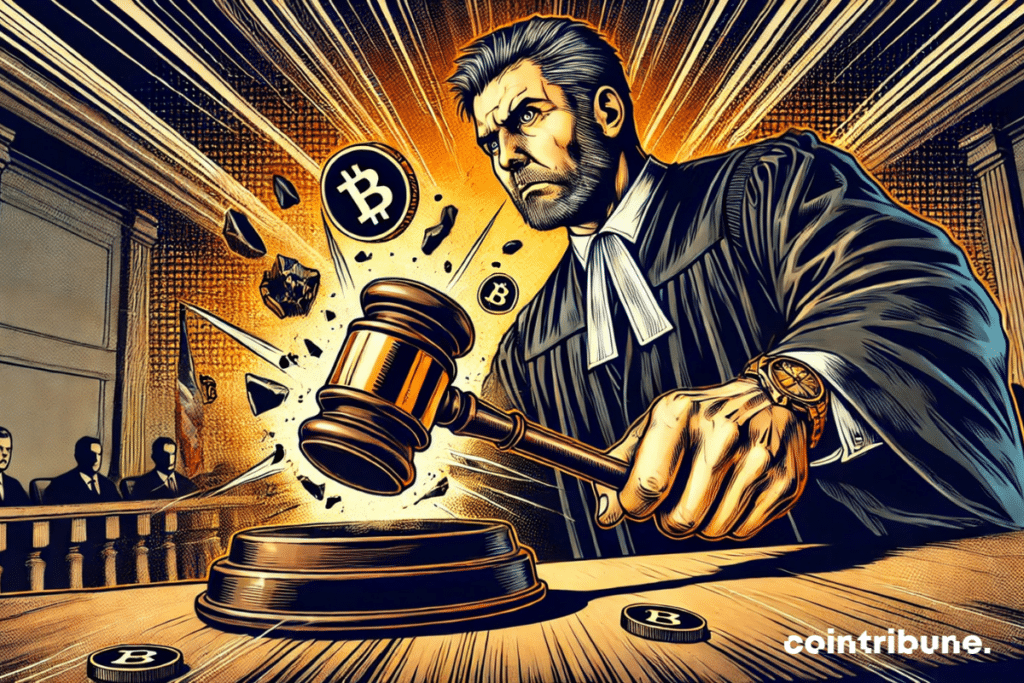Big Setback for Binance: US Supreme Court Upholds Class Action Lawsuit
Tue 14 January 2025 ▪
6
min reading ▪ acc
Cryptos have been operating in regulatory limbo for years, but the latest US Supreme Court ruling marks a watershed moment for Binance. By rejecting the platform’s request, the U.S. Supreme Court confirms that securities laws apply to transactions conducted on its servers, even if the company does not have a physical location in the United States. The verdict paves the way for a class-action lawsuit filed by investors who accuse Binance of selling unregistered cryptocurrencies. Already under pressure from a series of lawsuits and a multibillion-dollar settlement with the Justice Department, the exchange and its former CEO Changpeng Zhao see the legal challenges intensify. This setback raises a key question: is the United States imposing its authority on the entire global cryptocurrency market?

A legal decision with serious consequences
On January 13, the US Supreme Court rejected Binance’s request to challenge the lower court’s decision. The latter believed that the transactions carried out on the platform were subject to US securities laws on the grounds that they were completed on servers located in the United States. Thus, even though Binance does not have a physical headquarters on US soil, the courts believe that its activities fall under the purview of financial regulation in the United States due to the location of certain technical infrastructures.
The case arose in April 2020 when Chase Williams, an investor, filed a complaint accusing Binance of selling unregistered financial securities. According to him, the platform would allow the purchase of tokens considered securities without respecting the legal obligations imposed by the US authorities. In March 2023, a federal court upheld the continuation of this class action because US jurisdiction had jurisdiction over it due to the location of the transactions. Challenging this interpretation, Binance appealed to the Supreme Court, arguing that the rise of new technologies allowed investors to access foreign platforms without being subject to local laws. But this argument did not convince the judges, who refused to see the file, which opens the way for the proceedings against the exchange to continue.
Major implications for Binance and the crypto sector
With this rejection by the Supreme Court, Binance faces a new legal front in the United States, adding to a number of lawsuits already underway. Since 2023, the platform has been in the sights of US regulators, especially the Securities and Exchange Commission (SEC), which, like its former CEO Changpeng Zhao, accuses it of offering illegal financial services to US investors. This regulatory push culminated last November when Binance reached a settlement with the Department of Justice (DOJ). The exchange agreed to pay $4.3 billion to end prosecutions related to violations of anti-money laundering and anti-terrorist financing laws.
Binance’s legal troubles extend beyond the United States. In April 2023, the platform became the target of a class-action lawsuit in Canada accusing it of similar torts in the regulation of financial securities. In addition, FTX assets have filed lawsuits against Binance and Changpeng Zhao, seeking $1.8 billion from them for the controversial 2021 stock sale. The case comes in the context of the FTX crash, which has led to legal and financial tensions within the crypto ecosystem.
Beyond the direct implications for Binance, this matter could redefine the regulatory framework for crypto exchanges that operate internationally. By validating the application of US laws to foreign platforms, the Supreme Court paves the way for increased control by tax authorities over offshore companies. The decision could prompt other regulators to adopt a similar approach, complicating the compliance strategy of industry players. If Binance cannot handle these legal attacks, other exchanges could be forced to quickly adapt their operations to avoid the same fate.
As the crypto industry calls for clearer regulation, the Supreme Court’s decision represents a decisive turn in the dispute between US authorities and major exchanges. By validating the application of securities laws to transactions carried out on Binance, the US judiciary is paving the way for increased scrutiny of foreign exchange operating in the United States. This precedent could encourage other regulators to take similar measures, putting pressure on the entire sector. It remains to be seen whether Binance will be able to limit the impact of this collective action, or whether this decision will trigger a wave of tougher sanctions that risk redrawing the rules of the game for the global crypto ecosystem.
Maximize your Cointribune experience with our “Read and Earn” program! Earn points for every article you read and get access to exclusive rewards. Register now and start reaping the benefits.
A graduate of Sciences Po Toulouse and holder of the blockchain consultant certification issued by Alyra, I joined the Cointribune adventure in 2019. Convinced of the potential of blockchain to transform many sectors of the economy, I made a commitment to raise awareness and inform the general public about this ever-evolving ecosystem. My goal is to enable everyone to better understand blockchain and take advantage of the opportunities it offers. Every day I try to provide an objective analysis of current events, decipher market trends, convey the latest technological innovations and put into perspective the economic and social problems of this ongoing revolution.
DISCLAIMER OF LIABILITY
The comments and opinions expressed in this article are solely those of the author and should not be considered investment advice. Before making any investment decision, do your own research.















Post Comment